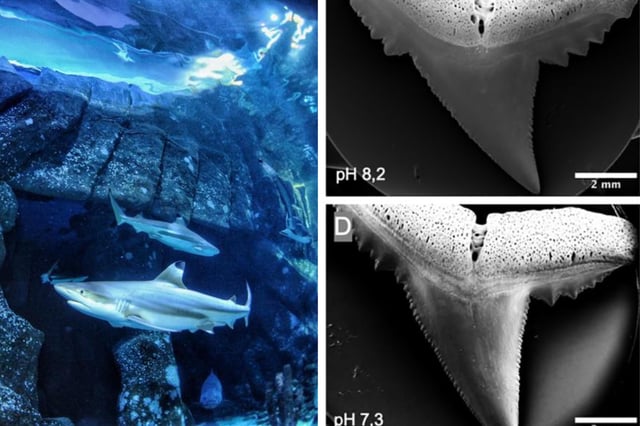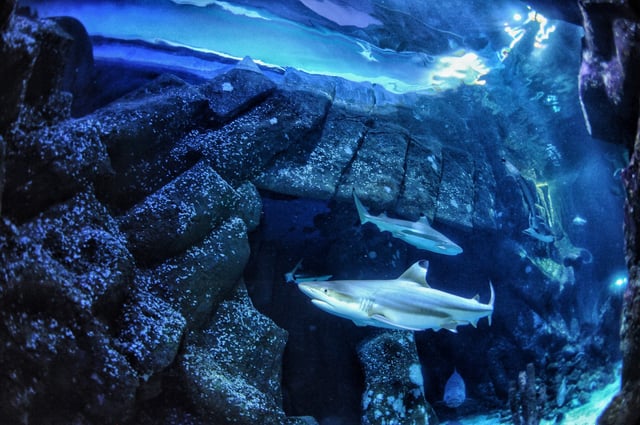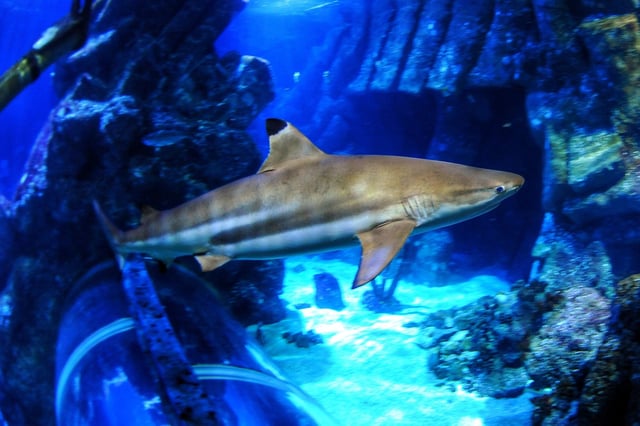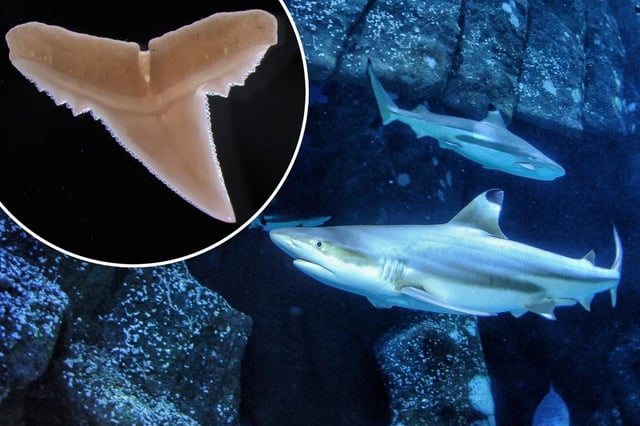Overview
- Blacktip reef shark teeth incubated for eight weeks at present-day pH (~8.1–8.2) versus a projected future pH (7.3) showed markedly more corrosion in the acidified water.
- Researchers documented visible surface cracks, holes, increased root corrosion, and structural degradation in teeth exposed to lower pH.
- Teeth in acidified conditions showed an average circumference increase of about 0.73 millimeters, indicating rougher, weakened edges rather than growth.
- About 600 naturally shed teeth were collected from an aquarium; 16 intact teeth were used in the main pH experiment and 36 for before–after circumference measurements.
- Authors and independent experts note the study used non-living tissue and an extreme long-term scenario, calling for multi-species, in vivo research to determine real-world effects on feeding and fitness.



